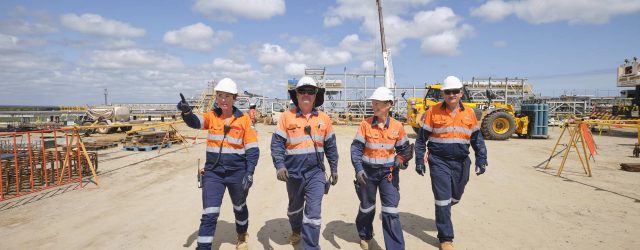Plus ça change, plus c’est la même chose
Posted: 12th April 2022
Posted in: Blog

Posted: 12th April 2022
Posted in: Blog
Chanticleer would be familiar with the French phrase “the more things change, the more they stay the same” and it could well summarise the upcoming Federal election. In an effort to limit point scoring opportunities, both main parties have so far shied away from committing to much needed reforms. Chanticleer has called this a wakeup call for industry (Time for a business ideas factory – Chanticleer, 11 April 2022).
We hear this call to switch from advocacy to ideas and we have done just that. We have a big idea, we have consulted widely on it and we have strong consensus that if implemented it will deliver greatly improved value for the Australian taxpayer whilst substantially improving the sustainability of the construction industry. All we need now is the winner of this year’s federal election to commit.
Representing the contractors responsible for delivering over 90 per cent of the nation’s major infrastructure, the Australian Constructors Association has consulted widely with state and federal governments as well as many other industry bodies to develop a significant policy initiative. It is an idea that has the potential to solve the industry’s lagging productivity growth as well as its sustainability challenges. It can be implemented at little expense and with huge benefit to the industry and the budget bottom line—$15 billion to be more precise.
The idea is FAIR—the Future Australian Infrastructure Rating. It is a mechanism to realise reform recommendations by the nation’s infrastructure advisor, Infrastructure Australia. FAIR provides a way for the Federal Government, as the bank roller of major projects, to coordinate and incentivise reform in a consistent way across state governments without getting involved in project details. And it is simple. It does not require any major change in existing federal governance processes or increased Commonwealth involvement.
Ratings get results. FAIR builds on the success of ratings schemes like NABERs, Green Star and the IS Rating to rate government funded projects on how well they performed against a range of key reform areas such as improved productivity, increased innovation and improved sovereign capability. Federally funded projects undertaken by state government delivery agencies would be given a rating that would be published, leading them to strive for increasingly better outcomes for their stakeholders.
Just like people who look at restaurant ratings, contractors, wanting the opportunity to demonstrate their capabilities, would look at state government agency ratings when choosing where to focus their best resources, providing another reason for government delivery agencies to collaborate with industry to drive improved outcomes.
The FAIR initiative could be included in the next iteration of the National Partnership Agreement as a requirement for all federally funded projects and to further incentivise quality outcomes, high ratings could unlock access to new funding pools similar to the previous Asset Recycling Scheme.
Why should anyone care about construction? Put simply, government is relying on the industry to lead economic recovery through construction of the record $120 billion pipeline of projects on the basis that every dollar spent has a $3 kick on to the wider economy.
The construction industry is the nation’s third largest, contributing 7 per cent to GDP, and yet it is one of the least productive. If we could just halve the productivity gap of other major industries over the last 30 years, we could be saving $15 billion every year[1]. Instead, the construction industry accounts for 25 per cent of all insolvencies in Australia and rising. Its workers are six times more likely to die from suicide than a workplace incident. It has the widest gender pay gap of any industry and women make up only 12 per cent of the workforce. No wonder the industry is struggling to attract and retain sufficient people to construct the pipeline of work ahead.
If implemented, FAIR would see the Federal Government address the industry’s skills shortage while unlocking significant productivity gains. FAIR would drive innovation, increase sovereign capability, build capability and capacity and improve the culture of the Australian construction industry so that it is an industry of choice, able to deliver the infrastructure that Australia needs—when it needs it—and for a price that it can afford.
What new government could pass up such an opportunity?